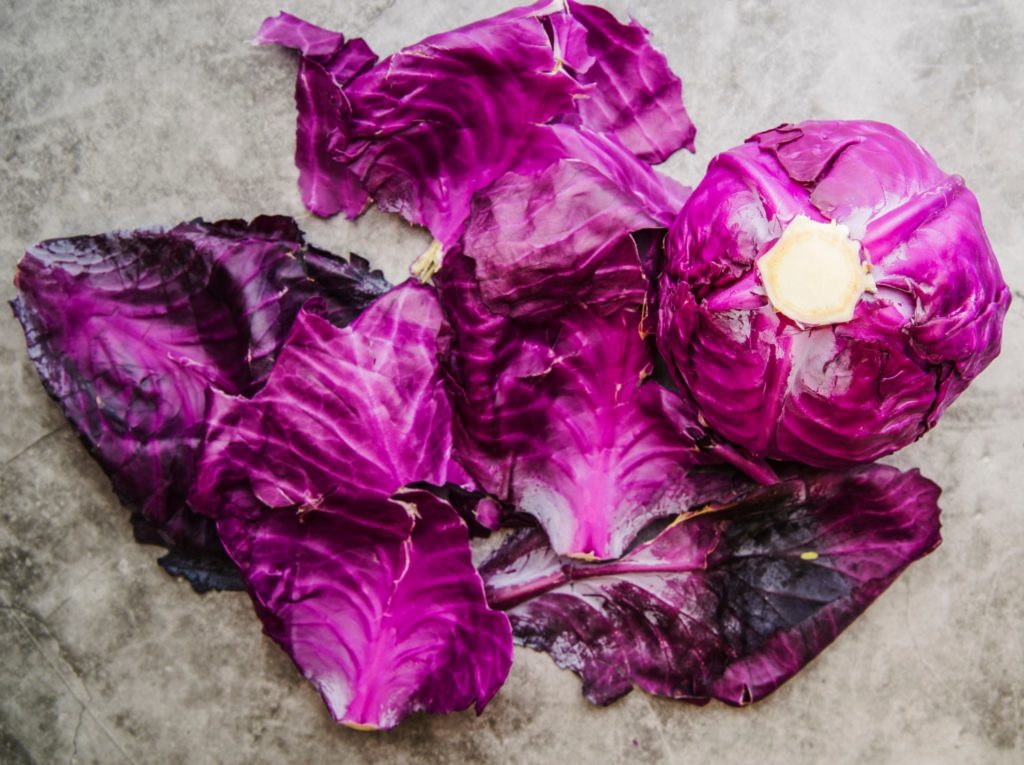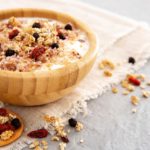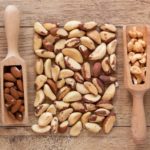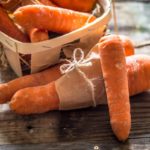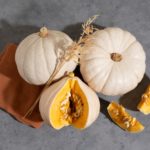
Bernadeth Atrinindarti
MAppSc (Advanced Nutrition Practice)
In this article we will be looking at mostly cruciferous vegetables and the current studies and research concerning their potential anti-cancer properties.
Broccoli
Broccoli, a cruciferous vegetable, is renowned for its potential health benefits, particularly in relation to cancer prevention.
Several studies have highlighted how the consumption of broccoli and other cruciferous vegetables may lower the risk of certain types of cancer.
Broccoli contains a high amount of sulforaphane which is a cancer-fighting plant compound that has been linked to reducing the risks of
- prostate cancer
- breast cancer
- colon cancer
- oral cancer
A research dating back to 1997 by John Hopkins University professor and nutrition biochemist Dr. Jed Fahey found that broccoli may radically lower our chances of getting cancer.
Sulforaphane is a cancer-fighting compound
Fahey was looking at small quantities of young cruciferous sprouts extracts and found that glucosinolate helps inhibit the number of mammary tumor development in rats.
They were treated with daily intragastric doses of 25-100 μmol of glucosinolate from 3-day-old broccoli sprouts extracted at age 47-51 days.[1]
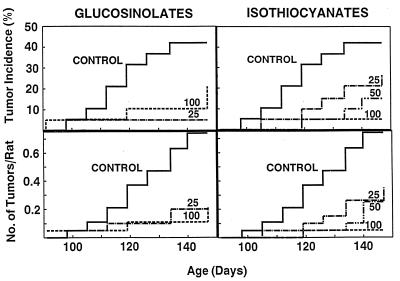
Other research and studies showed that broccoli promotes:
- programmed cell death/apoptosis
- induces cell cycle arrest
- inhibits angiogenesis
- reduces inflammation
- alters susceptibility to carcinogens
- reduces invasion and metastasis
- exhibits antioxidant and anti-inflammatory properties.[2]
Important to note is that excessive heat exposure can destroy the enzyme that activates glucosinolates into beneficial compounds.
Quickly blanching and cooling broccoli before adding it to a salad or relish tray can help increase these compounds. For cooked broccoli, steaming or briefly microwaving are excellent methods to retain its nutritional benefits.
Another study reported that a treatment with sulforaphane (0-20 µM) inhibits proliferation (rapid growth) potential of the human breast cancer cells compared to control.
These findings are known to be dose and time dependent, thus the higher the dose and the longer the treatment results in more significant effect.[3]
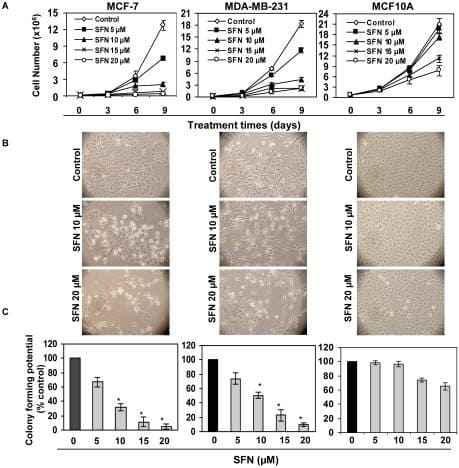
A study by Park et al. also reported that sulforaphane treatment can help the inhibition of the cell viability (the number of healthy cells) in human carcinoma HeLa and hepatocarcinoma HepG2 cells.[4]
Brussels Sprouts
Brussels sprouts (Brassica oleraceae) have also been linked to a decreased cancer risk.
As discussed in the previous section, when cooked and digested, glucosinolates break down into isothiocyanates, compounds that have been studied for their anti-cancer properties, including protecting cells from DNA damage and inhibiting the growth of new blood vessels in tumors.[5]
A case-control study by Bosetti et al. showed that a consumption of at least one portion of cruciferous vegetables (~125 g) per week significantly reduced the risks of several common cancers. These include oral cavity/pharynx, esophagus , colorectum, breast and kidney cancer.[6]
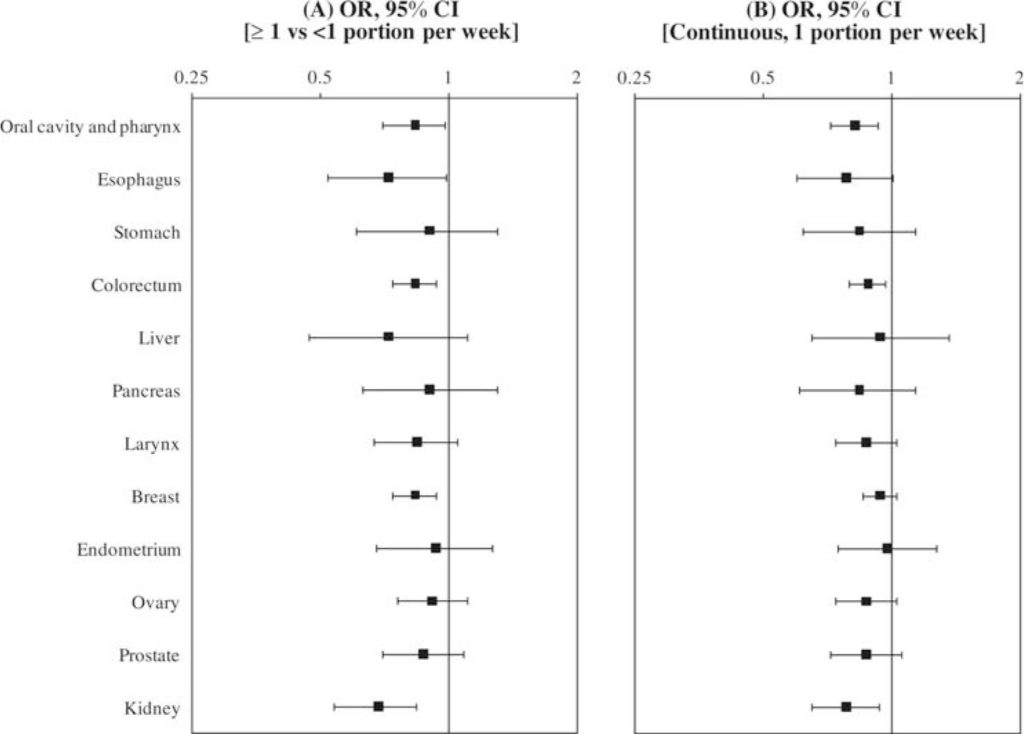
Another study observed the anti-cancer activity of several cruciferous vegetables including broccoli, Brussels sprouts, cauliflower and red cherry radish.
The result showed that extract Brussels sprouts had a significant cytotoxic effect on three human carcinoma cancer lines (liver HePG2, breast MCF-7, and colon HCT116).
Furthermore, it also displayed potent growth inhibitory activity against three human cancer cell lines.[7]
Bok Choy
Bok choy, pak choi or Chinese white cabbage, belongs to the cruciferous family of vegetables.
These vegetables are known to contain a complex mixture of health-related phytochemicals, including phenolic compounds, carotenoids, and glucosinolates, as well as vitamins, fiber, soluble sugars and minerals.
A study reported that bok choy extract may help reduce cell proliferation (an increase in the number of cells) in the human colon cancer cell (HT-29) lines.[8]
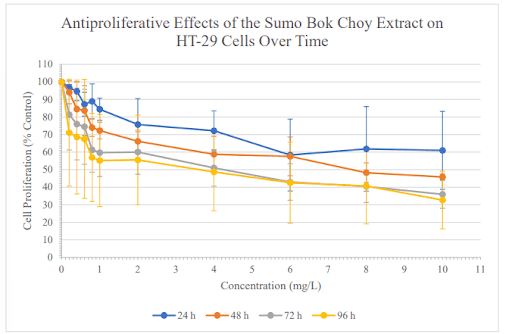
The result showed an antiproliferative effect on colon cancer cells in a dose- and time-dependent manner.
It displayed more significant decrease in cell proliferation observed at higher concentrations (doses ranging from 0.2-10.0 mg/L) and higher inhibitory effect with longer incubation times (ranging between 24-96 hours).[8]
Cabbage
Red cabbage (Brassica olaracea var. Capitata f. rubra) is a popular cruciferous vegetable and can be consumed in different forms such as a salad, cooked, fried, baked, or fermented.
Red cabbage contains various bioactive compounds including vitamin C, carotenoids and polyphenols.
RELATED — Vitamin C (Immunity and Collagen booster)
A study by Drozdowska observed the effect of juice of young shoots of red cabbage and mature vegetables on prostate cancer cell lines.[9]
The result showed that juice from young shoots of red cabbage and mature vegetables reduced cancer cell proliferation in a concentration and time dependent manner.
Proliferation was reduced by approximately 12% at 24 h, 14-32% at 48 h and 22-46% at 72 h with 3 and 4% concentration of juice of young shoots.
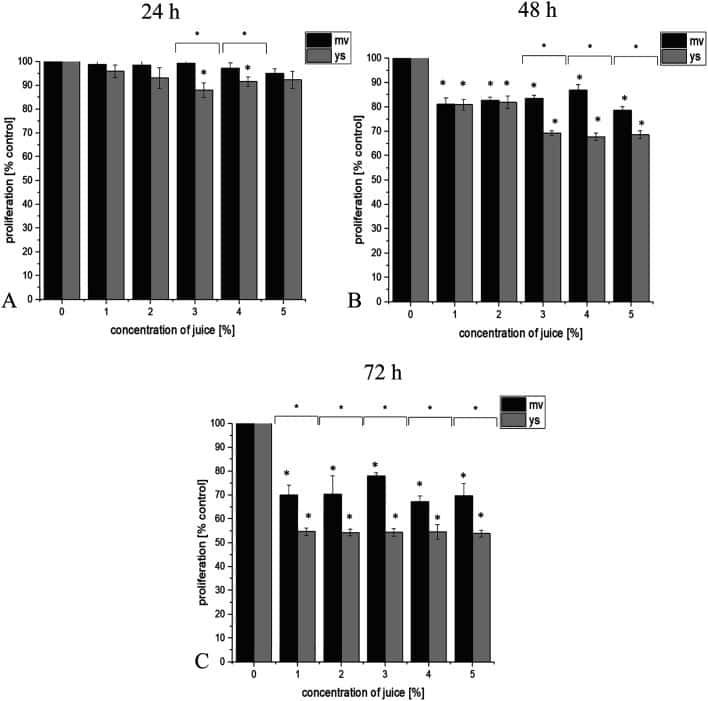
Red cabbage juice reduces cancer cell proliferation
Another study observed the anticancer and antioxidant effects of red cabbage on three cancerous cell lines including colon cancer cell line HT-29, breast cancer MCF-7, and colorectal cell line Caco-2.
The result showed that red cabbage extract increases the death rate of cancer cells and cytotoxicity effect in a dose-dependent manner. The cells were treated with various concentrations of the extract for 24 and 48 h.[10]
Carrots
Several meta-analysis studies on carrot consumption have indicated that carrots play a central role in protecting against the development of different types of cancers.
Carrots have a cancer-preventive compound called oxylipins falcarinol (FaOH) and falcarindiol (FaDOH) which have shown anti-proliferative and anti-inflammatory activity in numerous studies.
A cohort study by Deding et al. was looking at the association between daily carrot intake and the risk of colorectal cancer in the Danish population aged 50 to 64.
Results showed that groups reporting an intake of raw carrots less than 32 g/day had an insignificant decrease in risk and groups above 32 g/day had significantly decreased risk of colorectal cancer.[11]
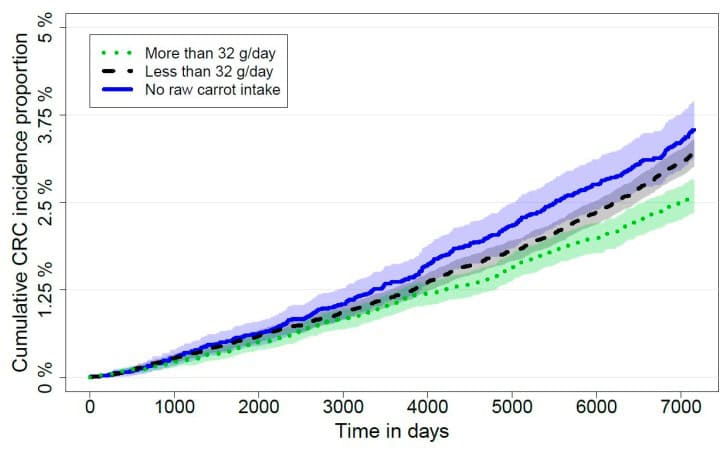
Another study observed the effect of carrot consumption on the risk of prostate cancer. The study found that intake of carrots was associated with a significant decrease of prostate cancer risk.
Carrot consumption can significantly decrease prostate cancer risk
In addition, the study showed that 10 grams of carrot intake per day was related to the decrease risk of prostate cancer.[12]
Cauliflower
Cauliflower (Brassica oleracea var. botrytis) is a cruciferous vegetable like broccoli, brussels sprouts, and other brassicas vegetables.
It is a source of chemopreventive isothiocyanates and choline, folate and vitamin C which are associated to reduce cancer risk.
RELATED — Vitamin B9 (Folate)
Sulforaphane (SFN) is a component known in broccoli also one of the main anti-cancer properties in cauliflower.
A study by Zhou et al. showed that SFN compounds extracted from cauliflower may reduce cell proliferation, decrease cell activity, and increase cell apoptosis in breast cancer cell lines.[13]
A study by Cuellar-Nunez et al. investigated extracts from cauliflower and radish inhibited metabolic activity in human colorectal adenocarcinoma cells (HCT116 and HT29).
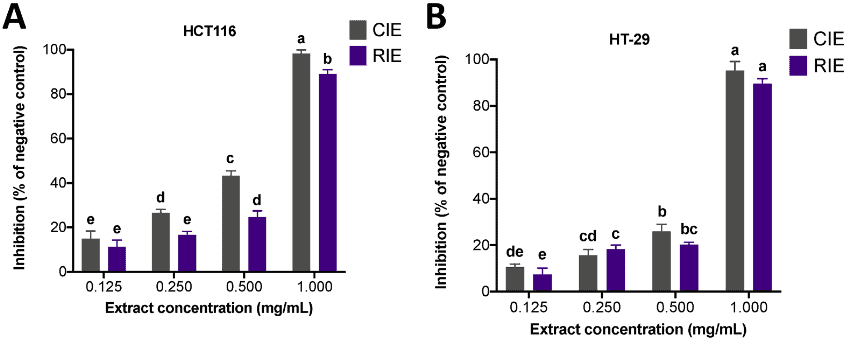
The result reported that cauliflower extract effectively inhibited HCT116 and HT29 metabolic activity.[14]
If you are interested in the previous article, you can find it here — Anti-cancer foods: The Healthiest Vegetables (Part 1).
Bernadeth’s passion in cooking, food and health led her to learn more about nutrition and the importance of functional foods. As a nutritionist, Bernadeth’s goal is to encourage a healthy-balanced diet and share the evidence-based nutrition knowledge in order for people to live healthier and longer lives…
If you would like to learn more about Bernadeth, see Expert: Bernadeth Atrinindarti.
References
(1) Fahey, J. W., Zhang, Y., & Talalay, P. (1997). Broccoli sprouts: an exceptionally rich source of inducers of enzymes that protect against chemical carcinogens. Proceedings of the National Academy of Sciences of the United States of America, 94(19), 10367–10372. https://doi.org/10.1073/pnas.94.19.10367
(2) Nandini, D. B., Rao, R. S., Deepak, B. S., & Reddy, P. B. (2020). Sulforaphane in broccoli: The green chemoprevention! Role in cancer prevention and therapy. Journal of oral and maxillofacial pathology : JOMFP, 24(2), 405. https://doi.org/10.4103/jomfp.JOMFP_126_19
(3) Meeran, S. M., Patel, S. N., & Tollefsbol, T. O. (2010). Sulforaphane causes epigenetic repression of hTERT expression in human breast cancer cell lines. PloS one, 5(7), e11457. https://doi.org/10.1371/journal.pone.0011457
(4) Park, S.Y., Kim, G.Y., Bae, S., Yoo, Y.H., & Choi, Y.H. (2007). Induction of apoptosis by isothiocyanate sulforaphane in human cervical carcinoma HeLa and hepatocarcinoma HepG2 cells through activation of caspase-3. Oncology Reports, 18, 181-187.
(5) Fuentes, F., Paredes-Gonzalez, X., & Kong, A. N. (2015). Dietary Glucosinolates Sulforaphane, Phenethyl Isothiocyanate, Indole-3-Carbinol/3,3′-Diindolylmethane: Anti-Oxidative Stress/Inflammation, Nrf2, Epigenetics/Epigenomics and In Vivo Cancer Chemopreventive Efficacy. Current pharmacology reports, 1(3), 179–196.
(6) Bosetti, C., Filomeno, M., Riso, P., Polesel, J., Levi, F., Talamini, R., . . . La Vecchia, C. (2012). Cruciferous vegetables and cancer risk in a network of case control studies. Annals of Oncology, 23(8), 2198-2203. doi:10.1093/annonc/mdr604
(7) Gaafar, A.A., Salama, Z.A., & El-Baz, F.K. (2020). A Comparative Study on the Active Constituents, Antioxidant Capacity and Anti-Cancer Activity of Cruciferous Vegetable Residues. Baghdad Science Journal, 17, 0743-0743. Retrieved from https://www.iasj.net/iasj/download/914ceb2c501839ba
(8) Isic, Aida (2017) A study of flavonols in bok choy and their anti-cancer properties. PhD thesis, Victoria University. Retrieved from https://vuir.vu.edu.au/37821/1/ISIC,%20Aida%20-%20THESIS_nosignature.pdf
(9) Drozdowska, M., Leszczyńska, T., Koronowicz, A., Piasna-Słupecka, E., & Dziadek, K. (2020). Comparative study of young shoots and the mature red headed cabbage as antioxidant food resources with antiproliferative effect on prostate cancer cells. RSC advances, 10(70), 43021–43034. https://doi.org/10.1039/d0ra07861a
(10) Tajalli, F., Saeedi, M., & Malekabadi, A. V. (2020). Anticancer and Antioxidant Effects of Red Cabbage on Three Cancerous Cell Lines and Comparison with a Normal Cell Line (HFF-3). Pakistan Society for Gene and Cell Therapy, 12-20. doi:https://doi.org/10.15562/gnc.73
(11) Deding, U., Baatrup, G., Christensen, L. P., & Kobaek-Larsen, M. (2020). Carrot Intake and Risk of Colorectal Cancer: A Prospective Cohort Study of 57,053 Danes. Nutrients, 12(2), 332. https://doi.org/10.3390/nu12020332
(12) Xu, X., Cheng, Y., Li, S., Zhu, Y., Xu, X., Zheng, X., . . . Xie, L. (2014). Dietary carrot consumption and the risk of prostate cancer. European Journal of Nutrition, 53(8), 1615-1623. doi:10.1007/s00394-014-0667-2
(13) Zhou, T., Zhou, M., Tong, C., & Zhuo, M. (2022). Cauliflower bioactive compound sulforaphane inhibits breast cancer development by suppressing NF-κB /MMP-9 signaling pathway expression. Cellular and molecular biology (Noisy-le-Grand, France), 68(4), 134–143.
(14) Cuellar-Nuñez, M. L., Luzardo-Ocampo, I., Lee-Martínez, S., Larrauri-Rodríguez, M., Zaldívar-Lelo de Larrea, G., Pérez-Serrano, R. M., & Camacho-Calderón, N. (2022). Isothiocyanate-Rich Extracts from Cauliflower (Brassica oleracea Var. Botrytis) and Radish (Raphanus sativus) Inhibited Metabolic Activity and Induced ROS in Selected Human HCT116 and HT-29 Colorectal Cancer Cells. International Journal of Environmental Research and Public Health, 19(22), 14919. Retrieved from https://www.mdpi.com/1660-4601/19/22/14919

